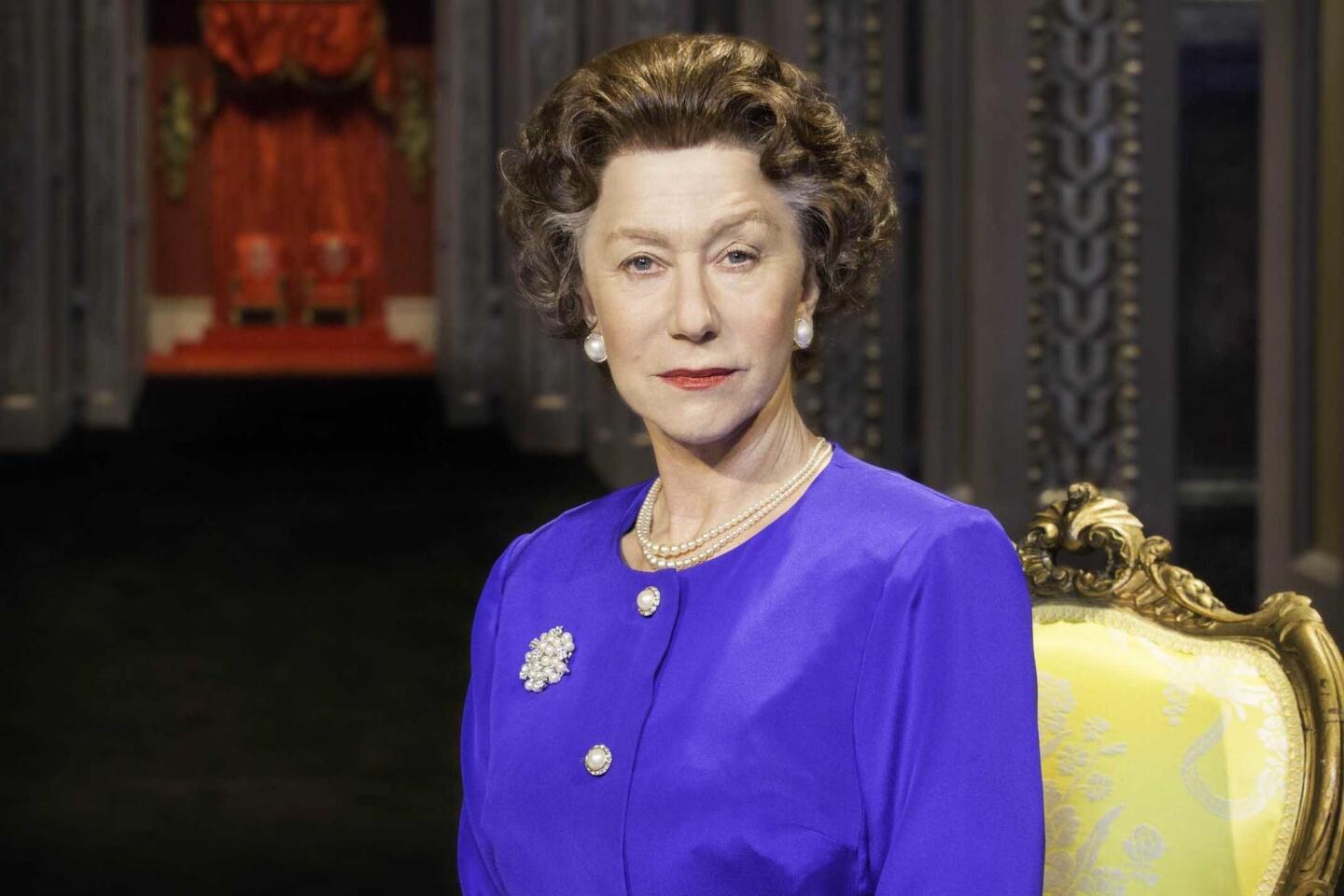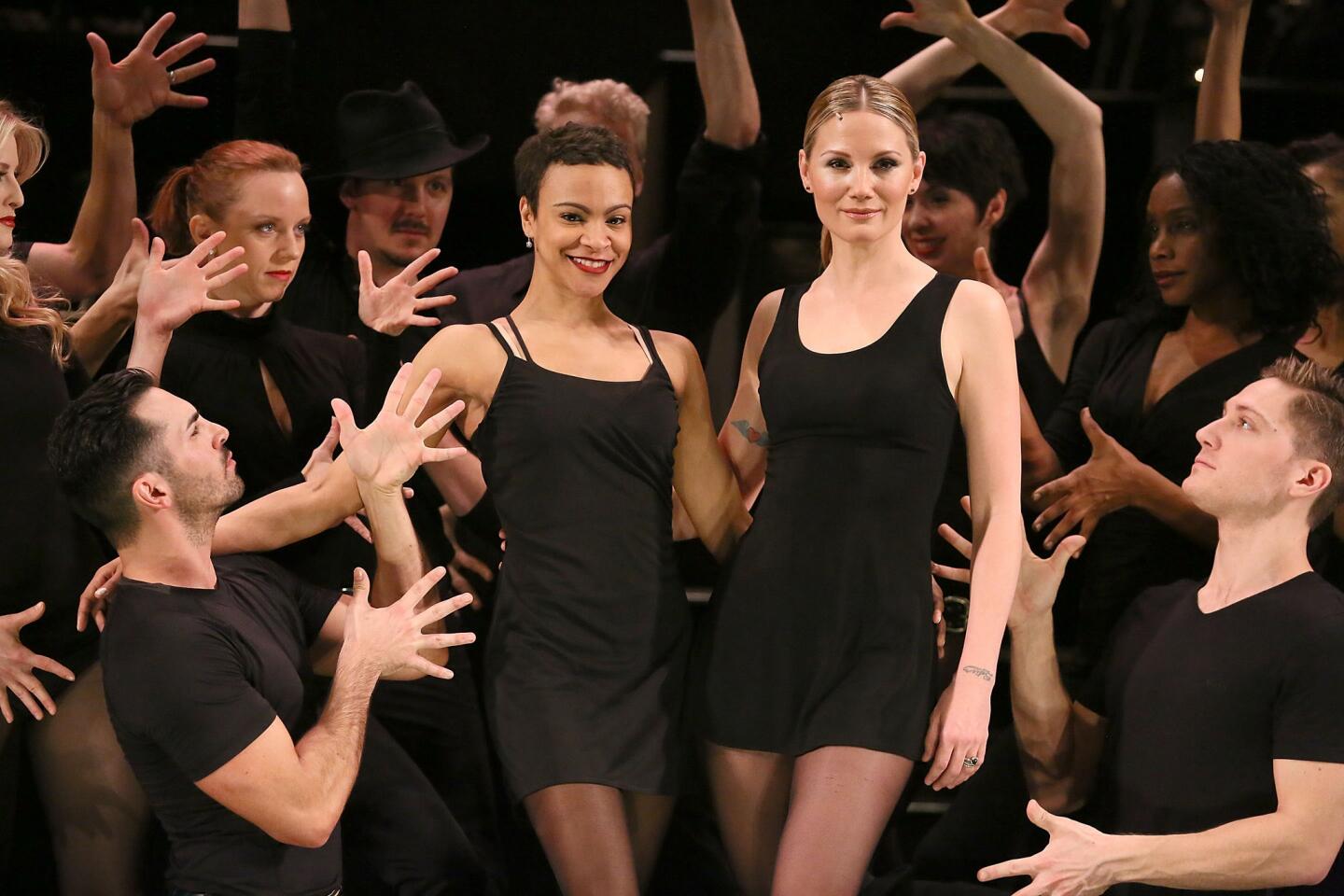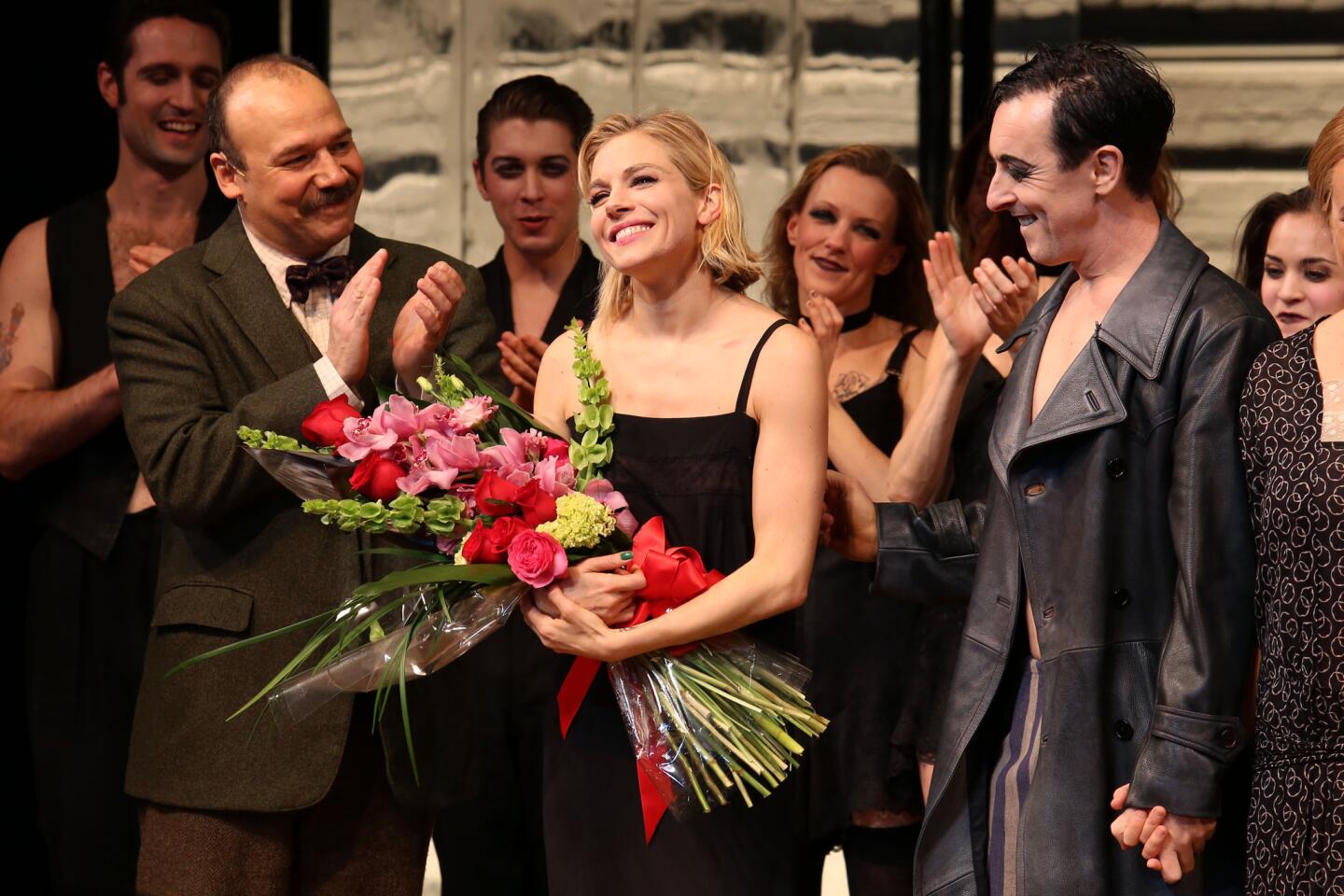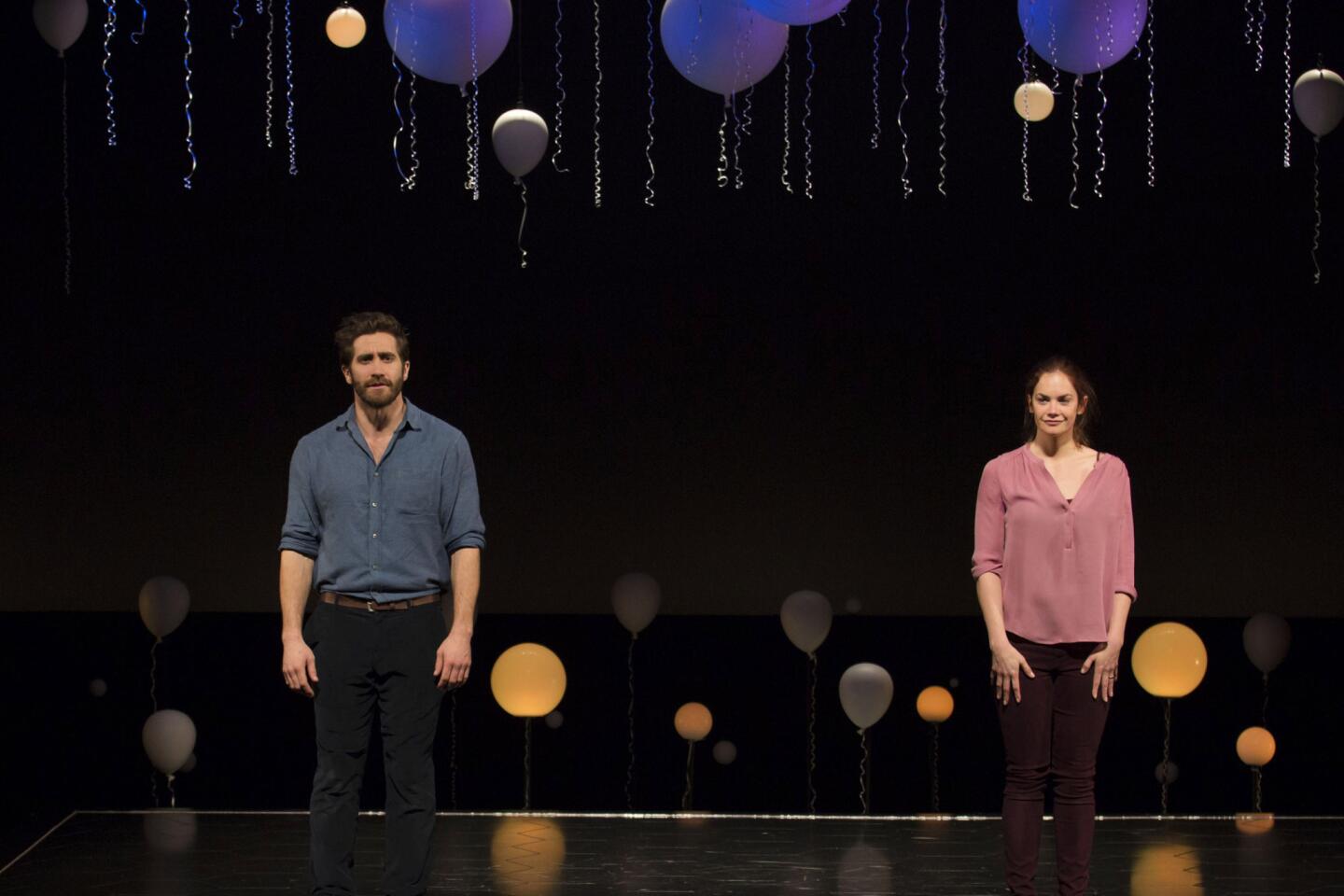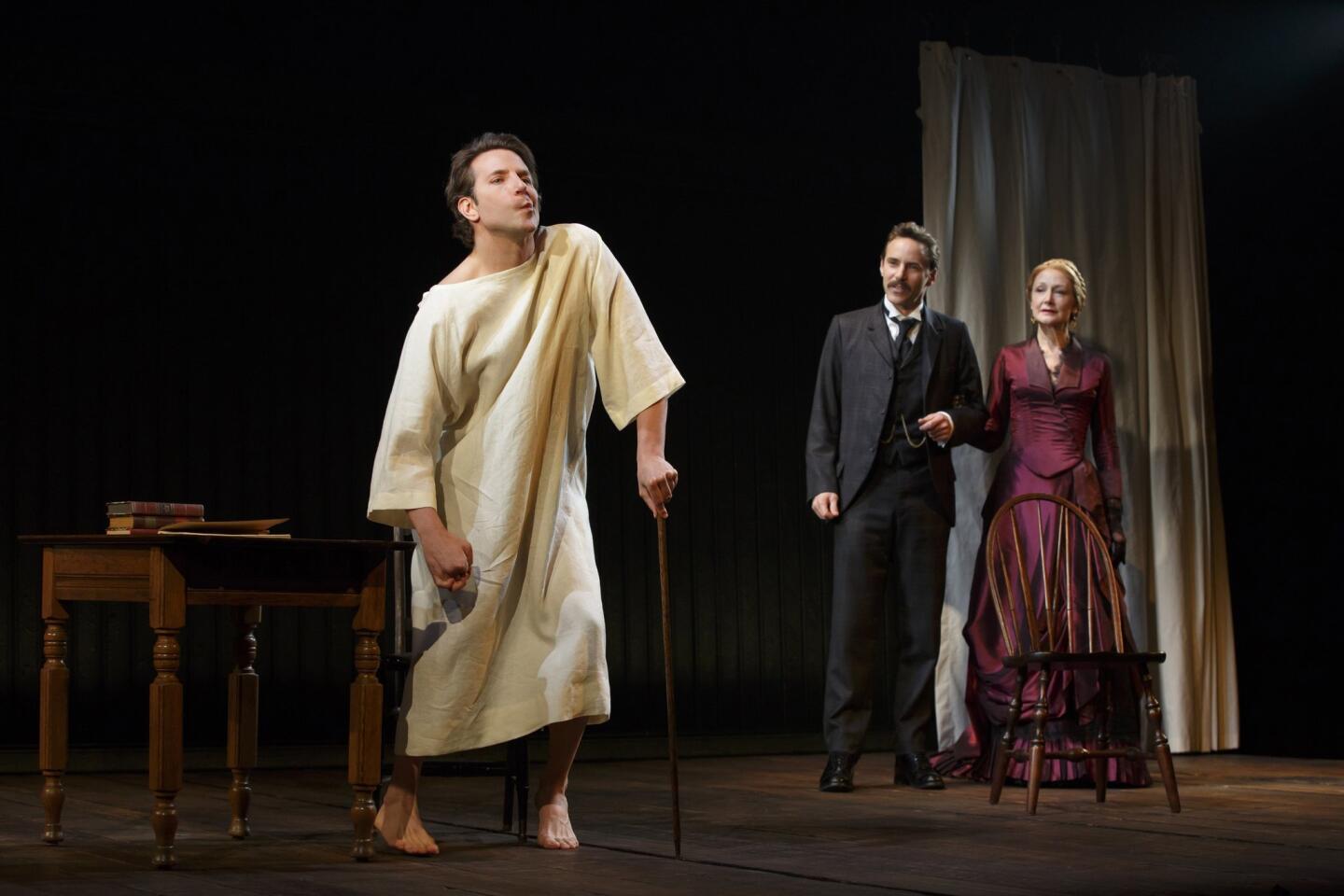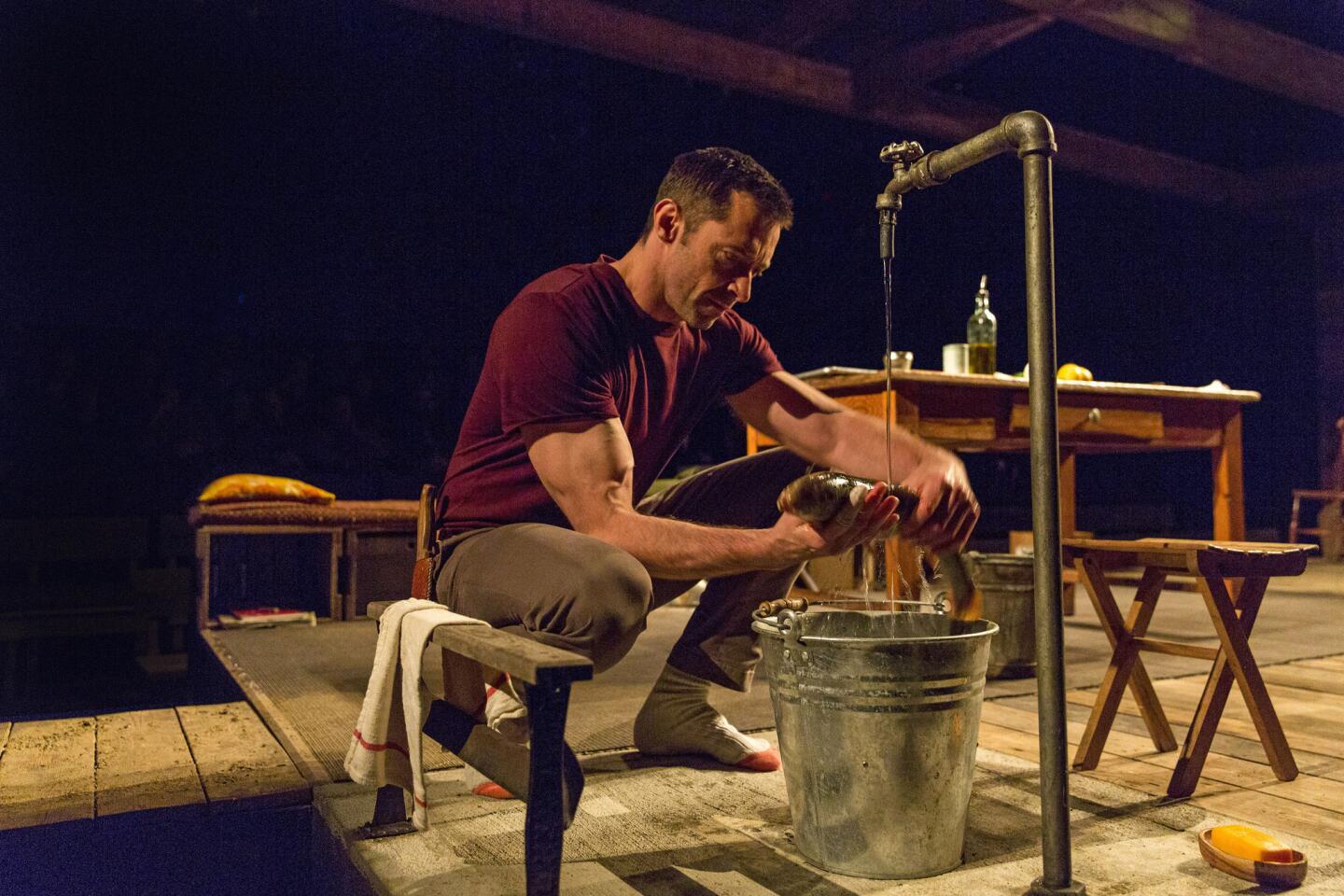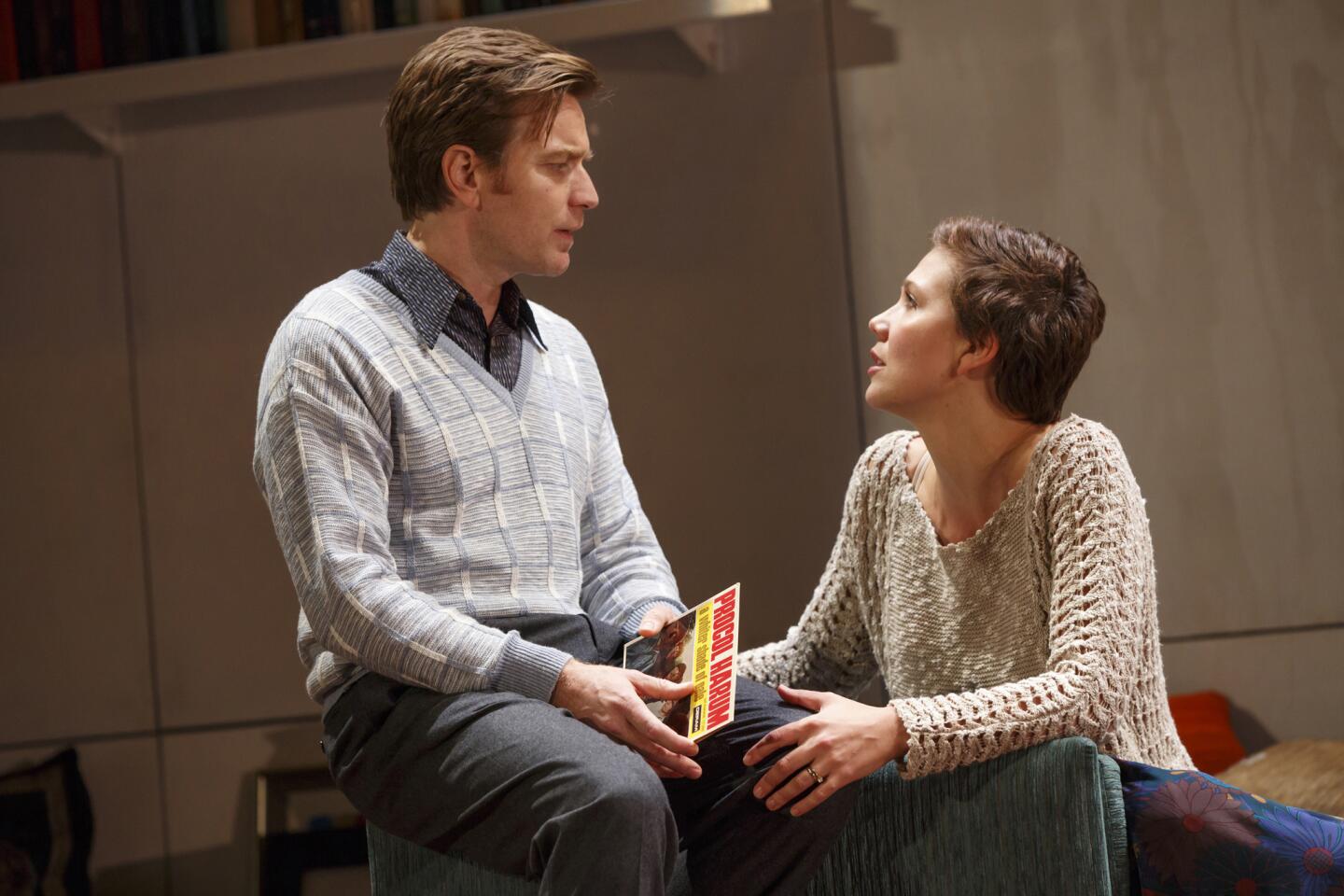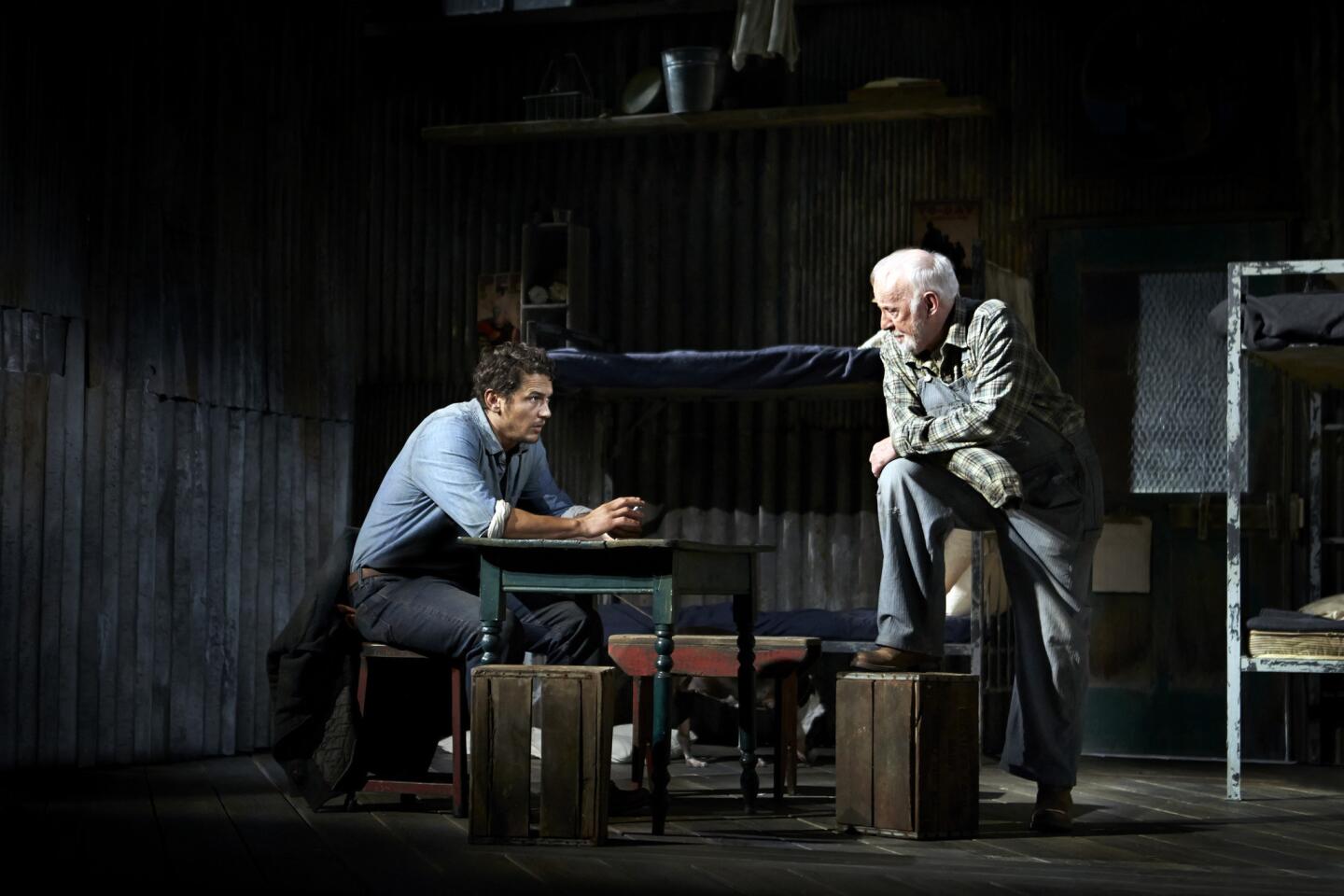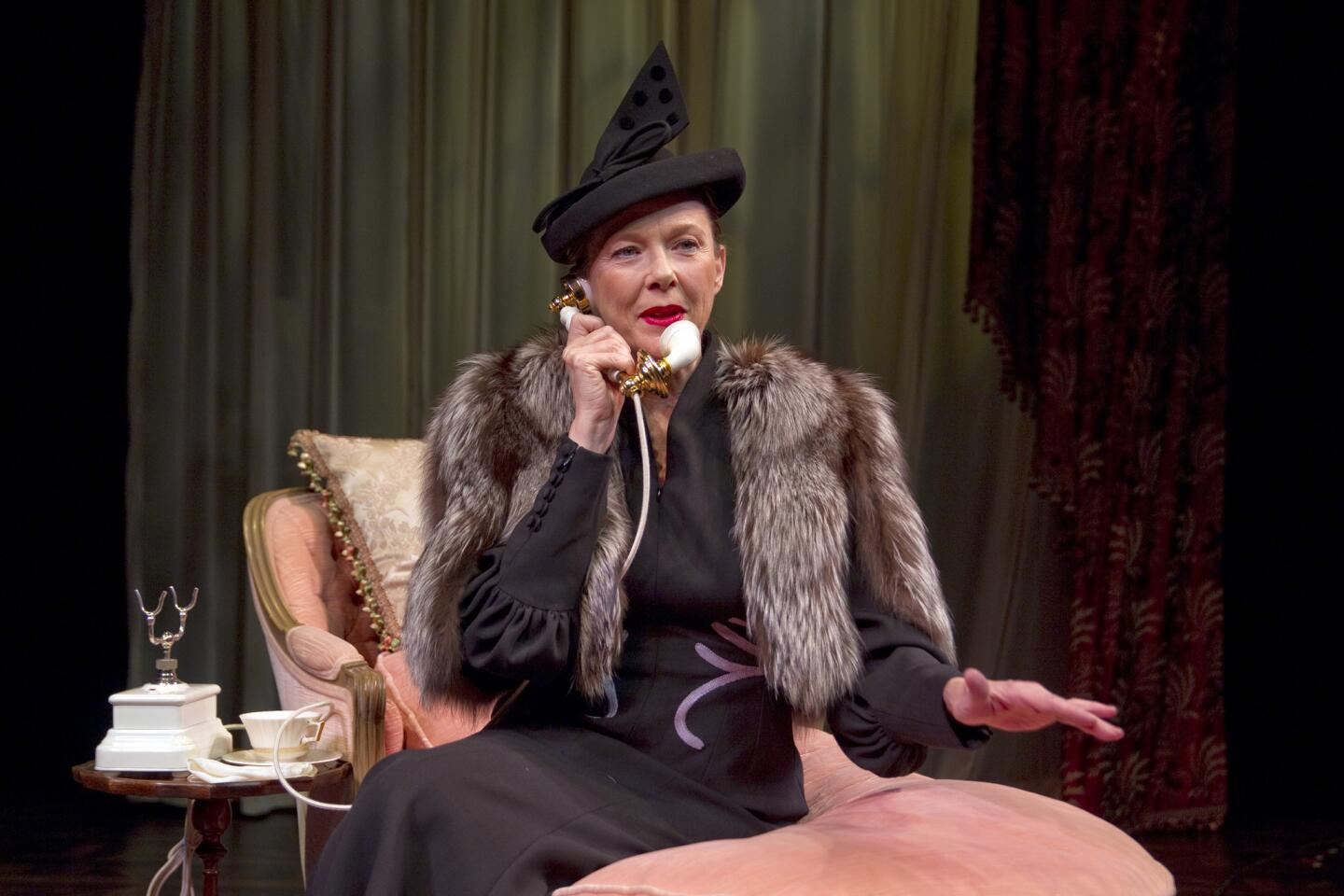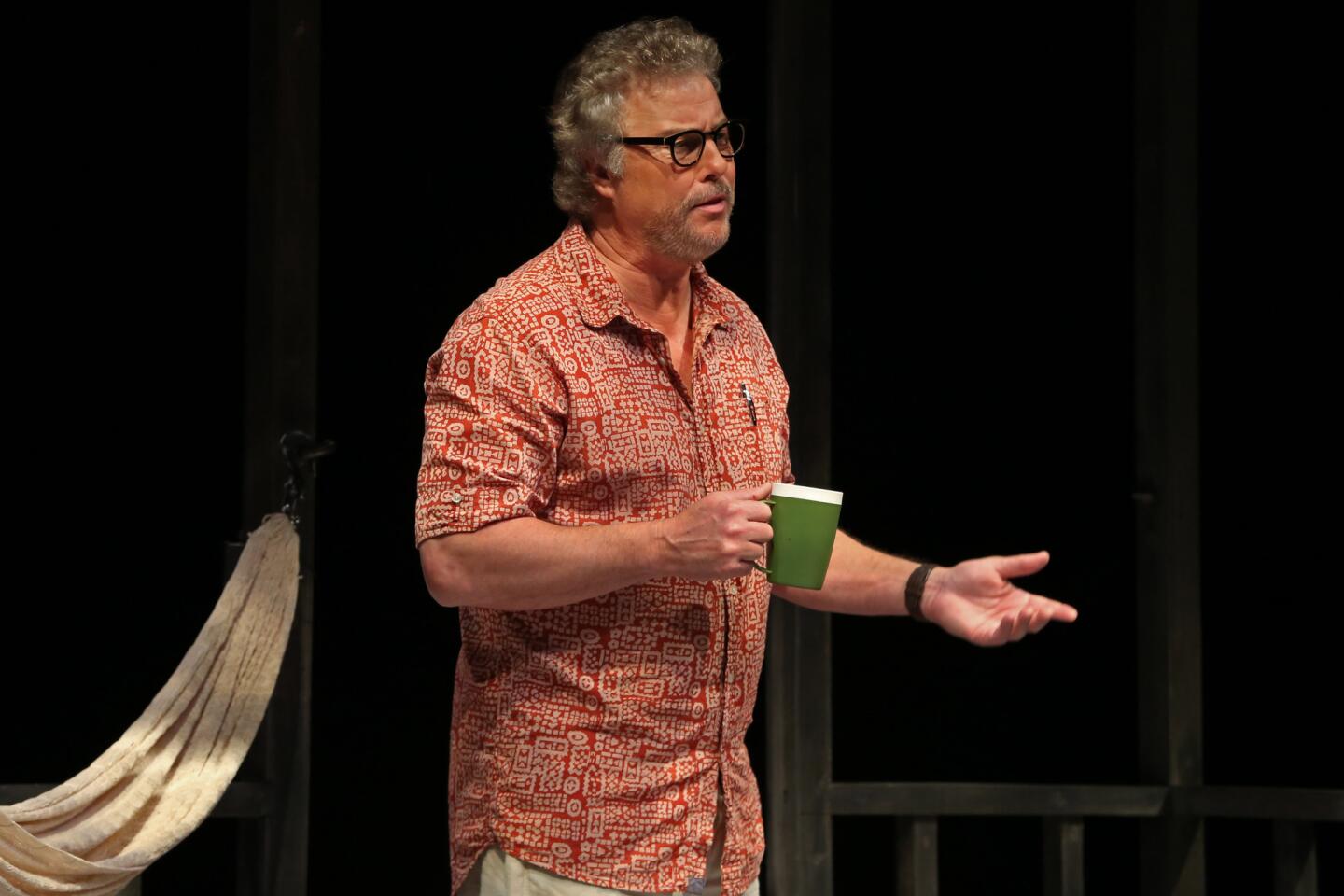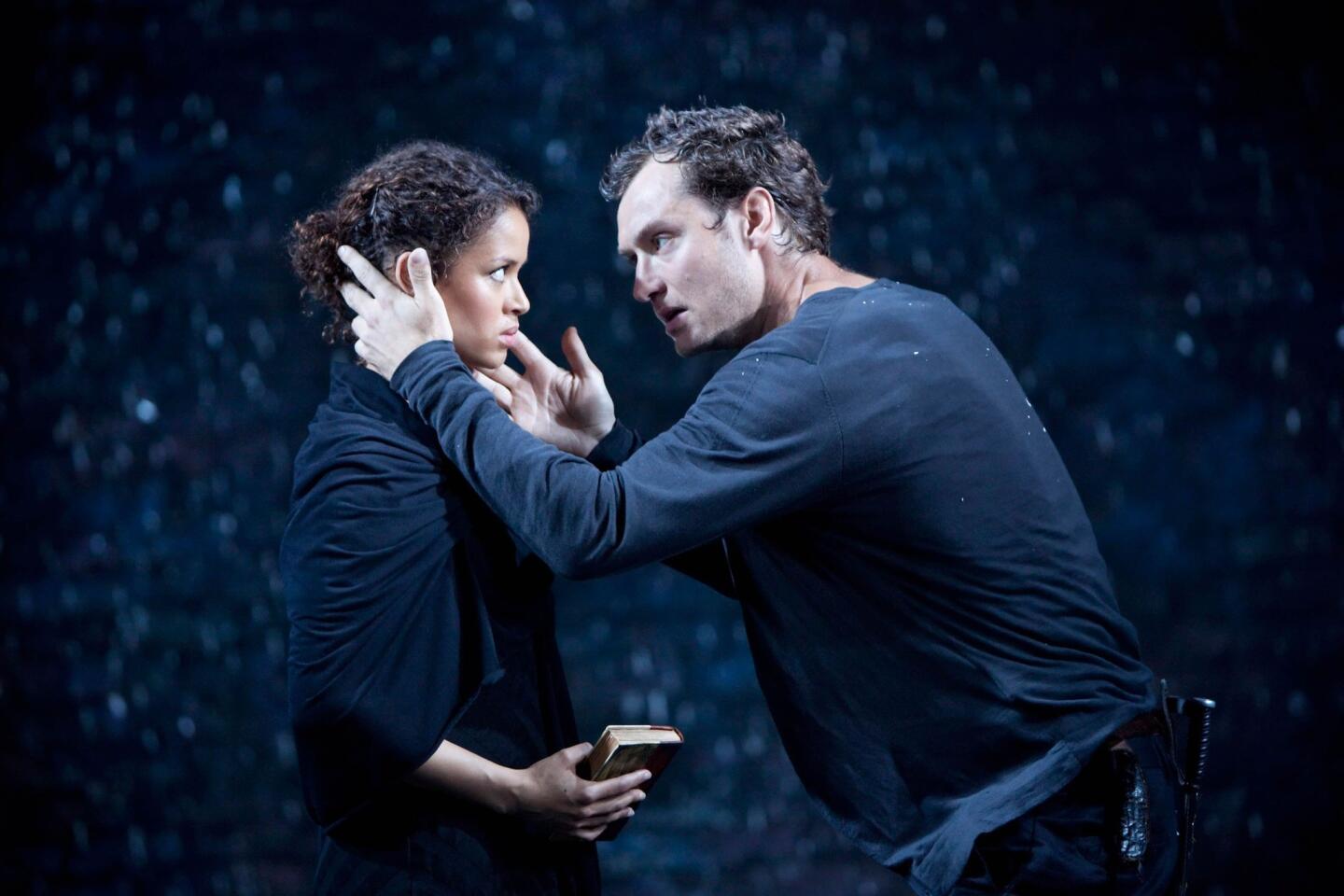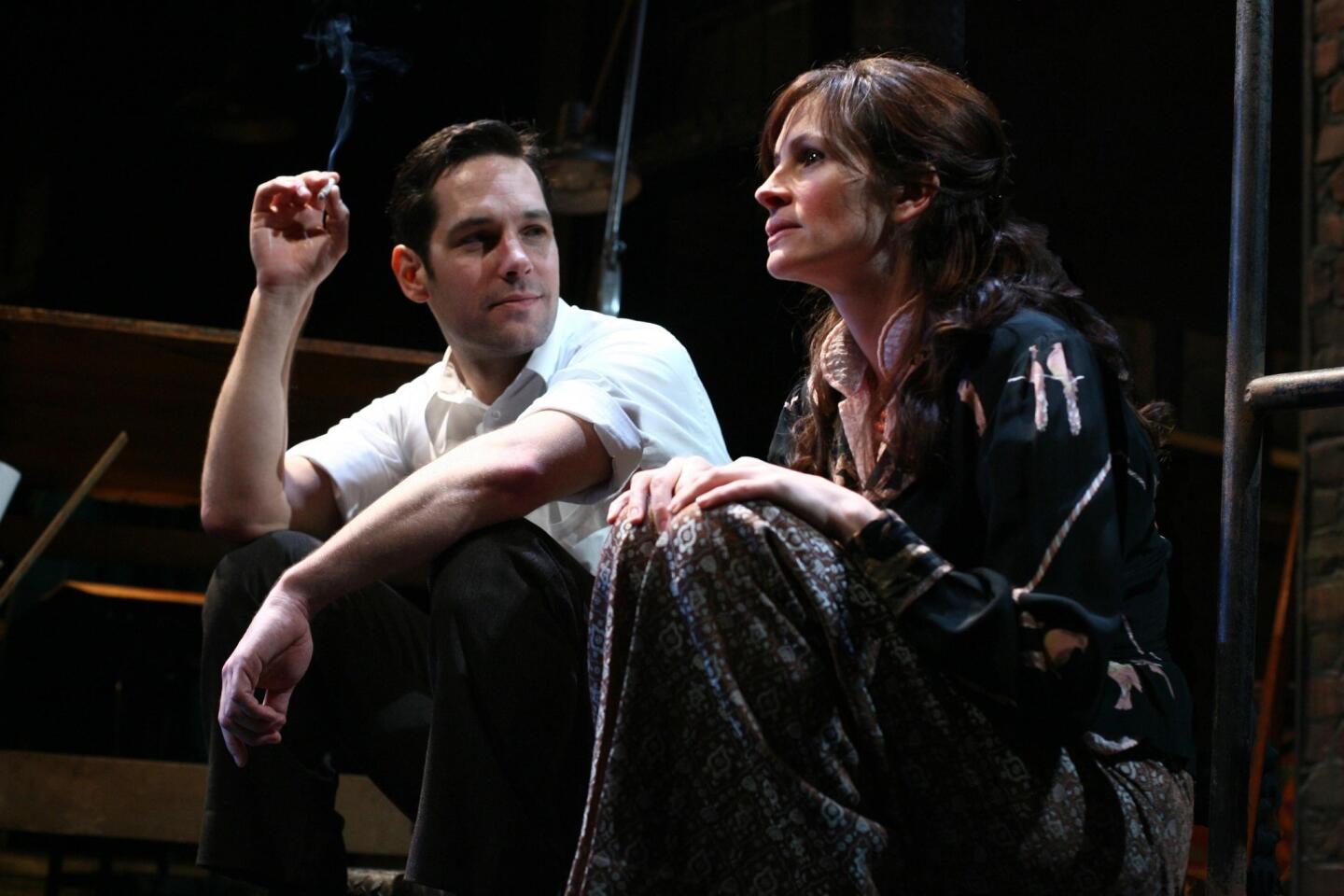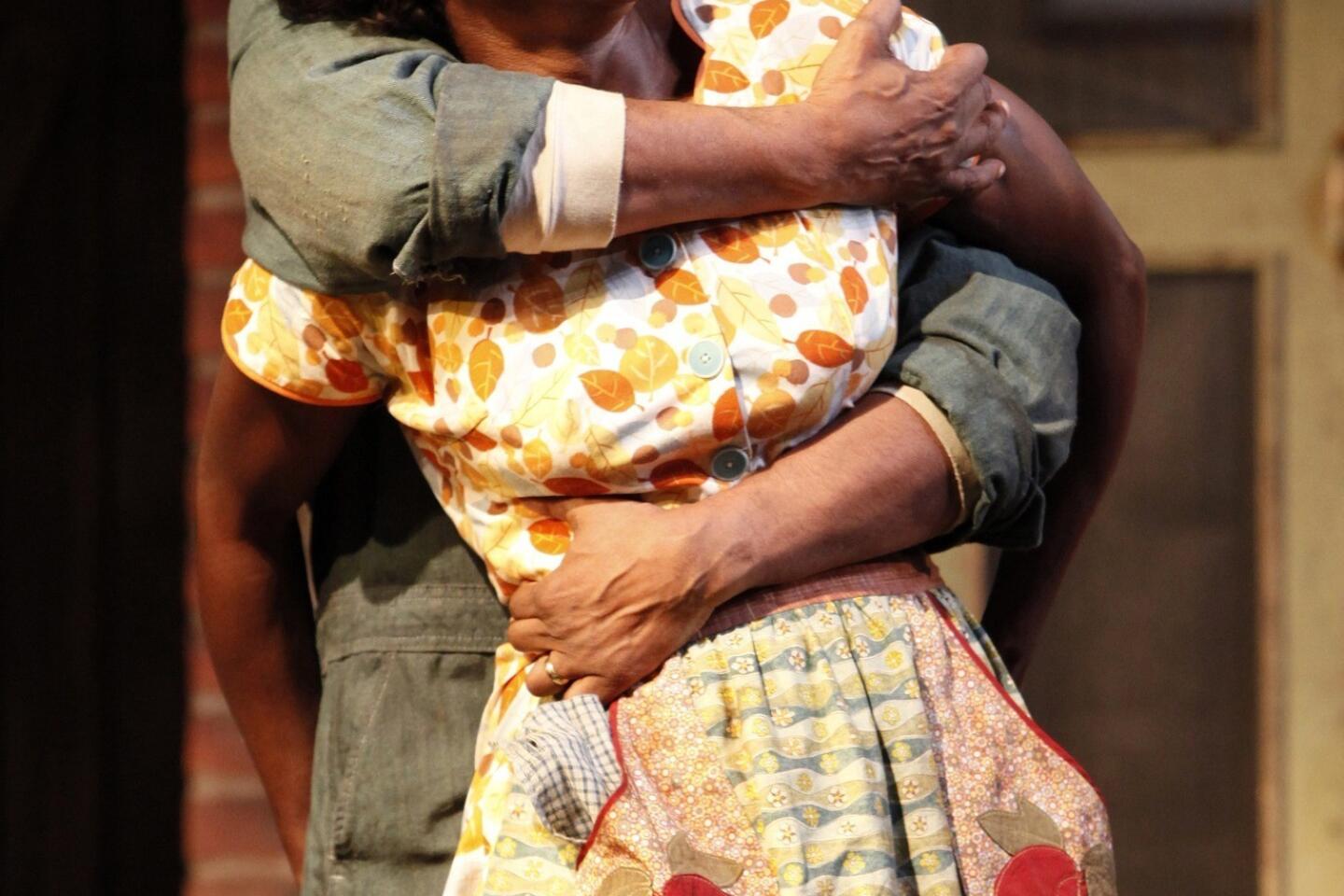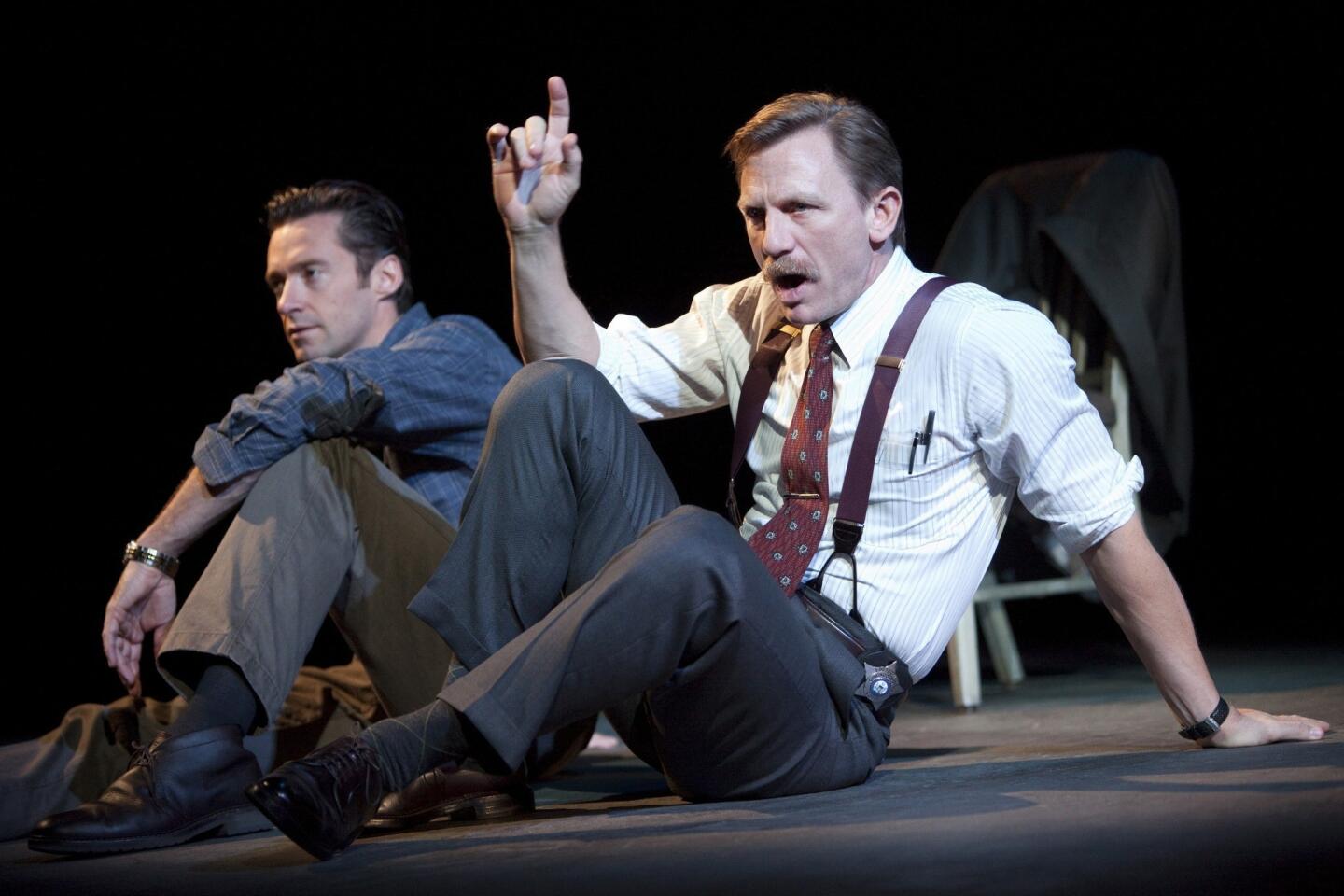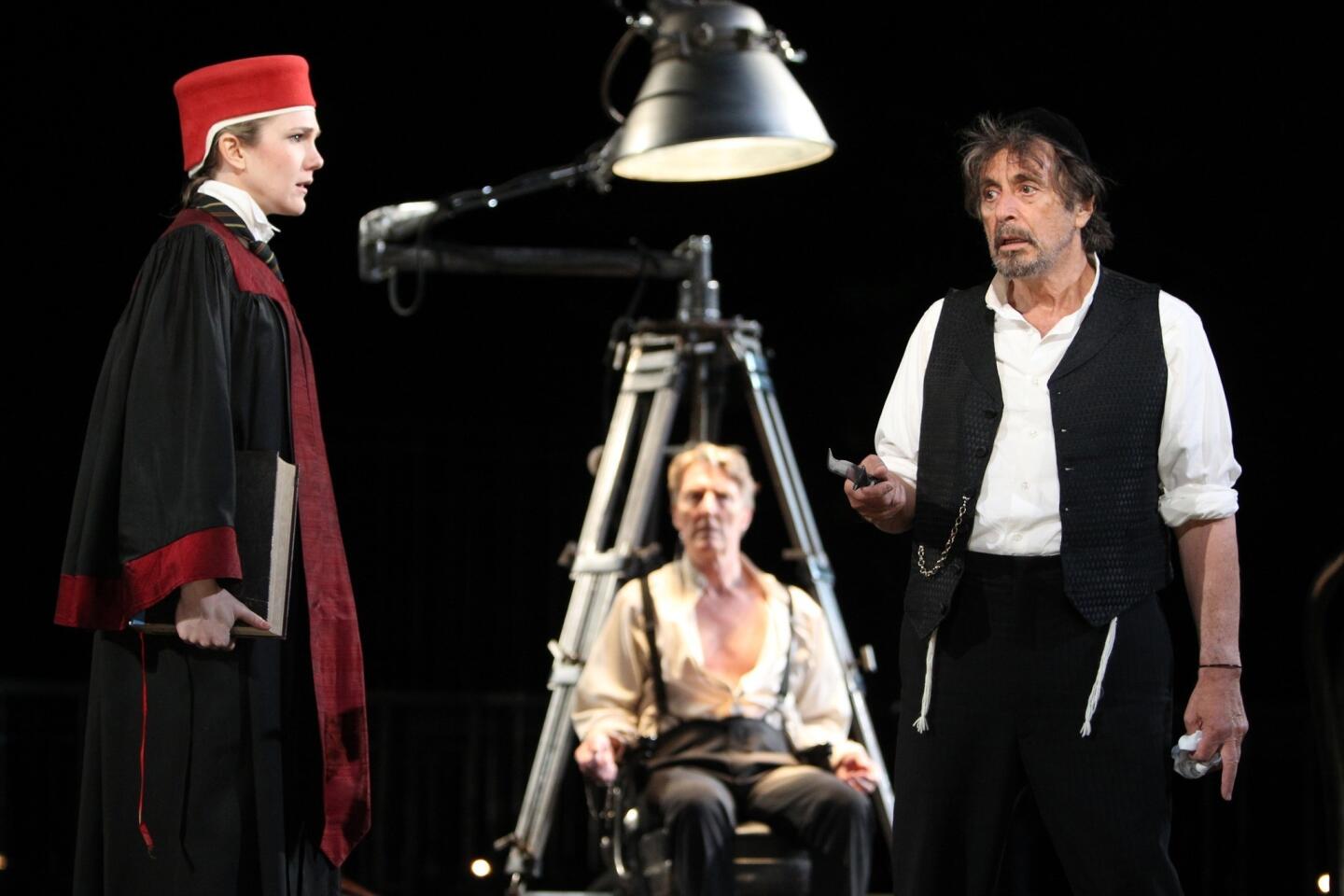Review: Cicely Tyson’s acting in ‘Trip to Bountiful’ is plentiful
- Share via
NEW YORK — Broadway for Cicely Tyson is clearly like riding a bike.
Her last rendezvous in the rialto was in “The Corn Is Green” in 1983, but you’d never know that 30 years had passed by her exquisitely understated performance in the revival of Horton Foote’s “The Trip to Bountiful,” which opened Tuesday at the Stephen Sondheim Theatre.
There’s not the slightest hesitancy or straining for effect in her portrayal of Carrie Watts, the elderly mother cooped up in a two-room Houston apartment with her son and daughter-in-law (played less assuredly by Cuba Gooding Jr. and Vanessa Williams) and desperate to return one last time to her backwater hometown, where even the sad memories bring her happiness.
PHOTOS: Hollywood stars on stage
This is a role that can tempt a performer to act with a capital A. But Tyson, whose age is subject to debate (some sources have it as 79, others 88 — she wisely is keeping mum), is too busy inhabiting her character’s experience to compete with Geraldine Page’s vibrantly colorful Oscar-winning performance or Lois Smith’s heralded 2005 off-Broadway portrayal.
This is Tyson’s Carrie Watts, and not a false note is struck as she makes her escape with her pension check to her family’s long-abandoned home in Bountiful. It’s a wonderful addition to a long and varied stage and screen career that will always be remembered for her double-Emmy-winning performance in “The Autobiography of Miss Jane Pittman.”
It’s a shame that the rest of the production, directed by Michael Wilson, one of Foote’s most reliable interpreters, isn’t up to Tyson’s level. Gooding, an Oscar winner for his performance in “Jerry Maguire,” is the weak link in the cast. What he brings in name recognition he takes away in inexperience.
Playing Carrie’s son, Ludie, an indecisive man caught between two very strong women, Gooding makes tentativeness seem like utter bewilderment. There are times when he’s onstage that he looks as though he’d like to call a timeout and get a pep talk from an acting coach.
Compounding matters is the lack of chemistry between Gooding’s Ludie and Williams’ Jessie Mae. Williams is too glamorously put together for her character. Jessie Mae might be a superficial woman who cares only about Hollywood movie magazines and her appearance, but she hardly has the means to look as shellacked as Williams.
The opening scene, set in the Watts’ cramped apartment one night when neither Carrie nor her son can sleep, is bearable only for the quiet grace of Tyson’s acting. Whatever she does — singing hymns in her rocking chair, rushing to make warm milk for Ludie, hunting for Jessie Mae’s misplaced recipe — she does so with unassuming conviction.
This canny veteran even manages to make it seem as if Gooding’s Ludie and Williams’ Jessie Mae really are husband and wife and not just passing acquaintances cast in the same play as supplemental box-office draws.
FULL COVERAGE: 2013 Spring arts preview
In more ways than one it’s a relief when Carrie flees to the bus station and makes friends with another traveler, Thelma (the very fine Condola Rashad). Their exchanges of simple courtesies and fellow feeling are completely in tune with Foote’s vision, which is larger and more profound than its tame outward appearance might suggest.
Carrie wants to die better than she has been living. This pilgrimage isn’t motivated by nostalgia so much as the desire to connect with her better self. The bus trip takes place against the scenic backdrop of a night sky, far away from the petty bickering back in Houston.
Because this is ultimately an existential journey, whatever historical incongruities there may be in having white characters from the Jim Crow South played by African American performers fade into the background. (The bus station is divided along color lines in Wilson’s production, but race doesn’t become an explicit issue in the play.)
There’s one moment that will stay with me forever. It occurs just after Carrie has arrived at the Harrison station and finds out that not only has her friend in Bountiful just died but that she has left her purse on the bus and hasn’t a penny to continue her journey. When the ticket agent (the invaluable Arthur French) and Thelma assure her that she’ll get her purse back, Carrie takes comfort from them and remarks, “Why is it some days everything works out, and some days nothing works out. I guess the good Lord is just with me today.”
Tyson rose from the bench and started singing a hymn to the Lord with such radiant joy that segments of the audience at the Stephen Sondheim started singing along with her. At that moment she was neither 88 nor 79 but an eternally young spirit reveling in the compassionate wisdom of a small yet timeless play.
Ms. Tyson, it’s time to make room for your Tony.
More to Read
The biggest entertainment stories
Get our big stories about Hollywood, film, television, music, arts, culture and more right in your inbox as soon as they publish.
You may occasionally receive promotional content from the Los Angeles Times.

